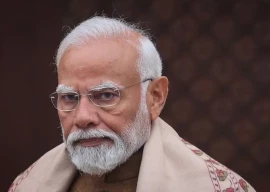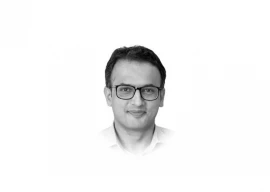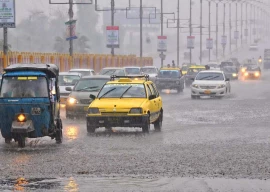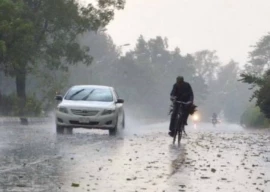T
he latest summit of the Group of Seven countries, or G7, was held in an Italian seaside resort. It was hosted by Prime Minister Georgia Meloni, a rightist politician with a programme that caters to the wishes of her large following.
Her focus is on preventing immigration into her country of people of colour, in particular those of the Islamic faith. In that she has aligned herself with other political figures in Europe who are also worried about the entry of Islam into their countries. She and other parties that have the same programme were expected to do well in the elections to the parliament of the European Union but that did not happen. Immigration and the ongoing dilution of the white populations in the G7 countries was expected to be a major item in the 2024 summit but that worry did not figure in the deliberations of the leaders.
G7 is a group of seven rich and developed countries. In alphabetical order it includes Canada, France, Germany, Italy, Japan, the United Kingdom and the United States. At one point not too long ago, Russia also joined the groups and G7 became G8. But Moscow’s aggressive stance towards its European neighbours resulted in its expulsion and G8 was once again G7.
As Steven Erlanger of The New York Times put it in his analysis of the summit for his newspaper, “President Biden may appear politically vulnerable and uncertain of reelection, but this summit meeting was another example of unchallenged American leadership of the West, especially on contentious issues of war and peace.” The world is looking as the country heads towards another presidential election in November. If Donald Trump gets another term in the White House, his country would move some distance away from democracy. For instance he might be able to appoint two more highly conservative individuals to the Supreme Court fixing the ideology of that body for four more decades.
The main focus this time around was on two ongoing wars, the Russian military action in Ukraine and the worsening situation in the Gaza Strip where Israel’s operations had taken close to 40,000 Palestinian lives. Most of those killed were women and children. This time around, there was great deal of interest in the United States leading the pack of Western nations. Leaders of countries such as Britain, Canada, France and Germany were all weakened politically by recent elections and those that were around the corner.
The main headline from the summit communique was the decision to use the earnings from the frozen financial assets of Russia. These were estimated at $50 billion. Also under discussion were the long-term security pacts with Ukraine signed by the United States and Japan. In fact, the summit was the just the first in a series of international discussions aimed at bolstering the position of President Volodymyr Zelensky of Ukraine in his ongoing confrontation with Russia. While no decisions were taken on the possibility of Ukraine’s admission into NATO, the G7 summiteers agreed on what the United States Secretary of State Anthony J Blinken has called “a bridge to membership” — a coordinated packages of long-term military and financial support for Kyiv that some have linked to a diplomatic and military “mission”.
“These summits have become easier to manage as the geopolitical situation has gotten worse,” said Jeremy Shapiro, research director of the European Council on Foreign Relations and an American former diplomat. It will be the same at the forthcoming NATO summit. “Everyone is nervous and sees greater benefit in a united West and American leadership. It is easy for the Americans to orchestrate. The luxury of big summit squabbles is pretty much gone.” A few years ago it would have been more raucous inside the room, said Shapiro. “But no one is undermining the United States now, not even the French President Emmanuel Macron who suffered a major political defeat in the European elections as did Chancellor Olaf Scholz of Germany.”
While the conflict in Ukraine was the main item of discussion, China also figured permanently. The summiteers spent some time worrying about the economic rise of China and the challenge that it posed for the G7 countries. As against the Russian attack on Ukraine, American and European interests did not coincide on China. Washington pleaded for the use of tough language about Beijing. In contrast to a few years ago, there at least 25 references to China in the communique but the summiteers did not go as far as Washington wanted them to go. This was the case in spite of the fact that China’s penetration into Europe is much more substantial than it has ventured into the United States. Europe, for instance, would have liked to see it taking the lead in working on developing and manufacturing electric vehicles. Unlike the American auto industry, the European firms had located some of their production facilities in China. One advantage China had in this field is that it has some of the minerals that are essential for producing the batteries that go into the production and running of electric vehicles. Judging by the exchange of visits by senior officials of China and the United States, it would appear that the two countries are trying hard to prevent a total breakdown in relations. That notwithstanding, Doanld Trump, when he was in the White House, imposed harsh tariffs on imports from China. Joe Biden, when he succeeded Trump, did not change this stance; his administration continued with the Trump era tariffs.
What do all these developments involving the West mean for Pakistan? I have addressed this question in some of my earlier writings. It is worth repeating some of what I have covered before. Among the world’s large economic powers, Pakistan looks to China for support. This involves not only large investments Beijing is making in Pakistan but also the support it provides balancing India’s stance towards Islamabad. China backs Pakistan as the latter seeks to develop economic relations with Afghanistan and the Muslim countries to the north. The China-funded road infrastructure that is improving Pakistan’s connections with the world outside its borders could be extended to Afghanistan and to the countries collectively known as the ‘Stans’.













COMMENTS
Comments are moderated and generally will be posted if they are on-topic and not abusive.
For more information, please see our Comments FAQ